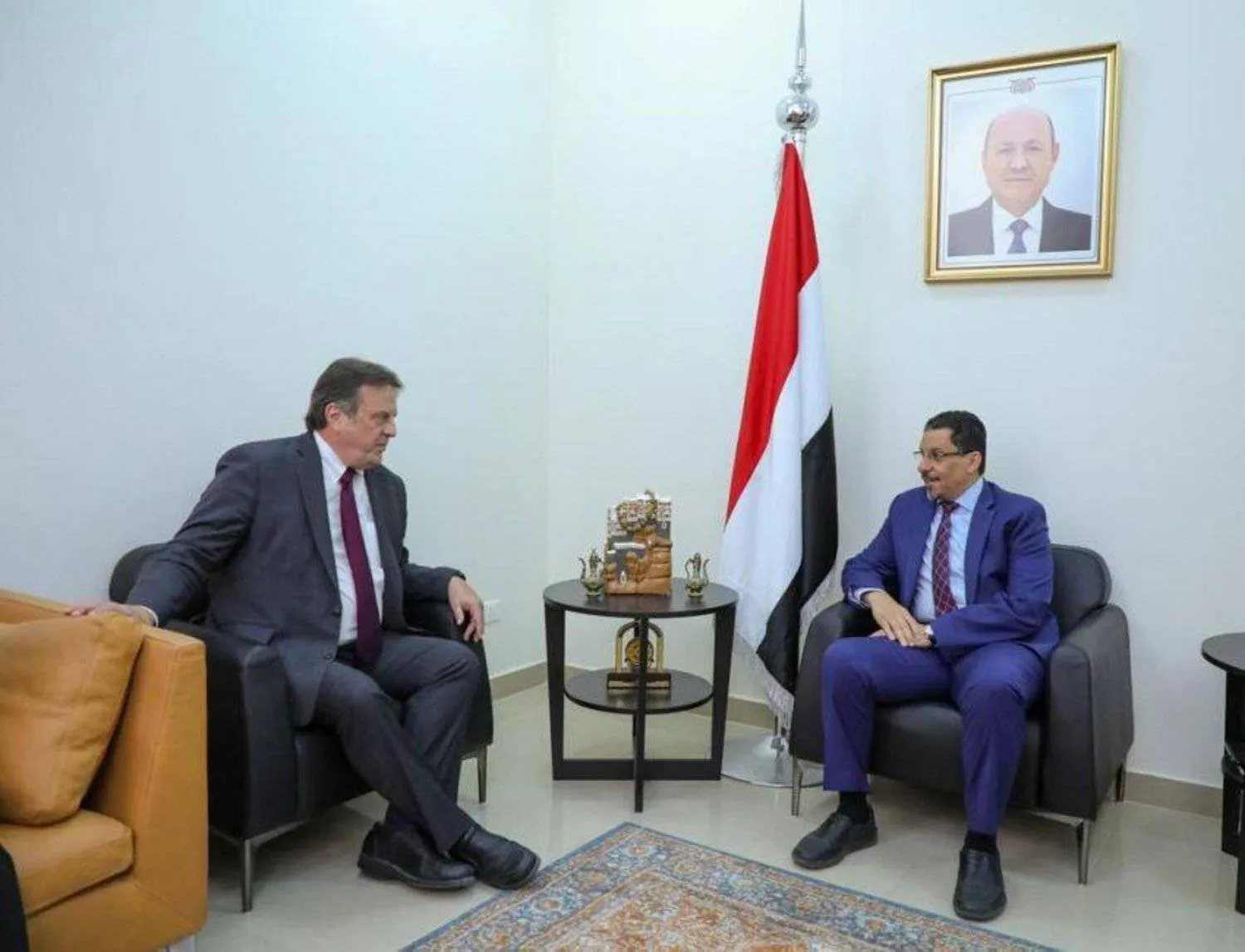Roughly two weeks after its initiation, the final stages of the rescue operation for the derelict oil tanker Safer, moored off the coasts of Yemen, have commenced.
Over 85% of the crude oil has been successfully transferred to the alternative vessel off the shores of Ras Isa in Hodeidah Governorate on the Red Sea, as reported by the UN.
The UN has disclosed that approximately 85% of the oil aboard Safer, estimated at 1.15 million barrels, has been transferred, indicating that only about 15% of the crude oil remains.
The process of extracting the cargo from the colossal yet dilapidated Safer to a new vessel, off the strategic Yemeni port of Hodeidah in the Red Sea, was initiated on July 23 in a mission aimed at averting an environmental catastrophe.
Yemeni Foreign Minister Ahmed bin Mubarak held discussions on Monday with the UN Resident Coordinator and Humanitarian Coordinator for Yemen, David Gressly, concerning the progress of the first phase of the Safer rescue plan, along with the oil transfer to the alternative tank.
The minister affirmed that during his meeting with Yemen’s resident humanitarian affairs coordinator, he was informed that 85% of the oil on board Safer has been successfully moved to the new vessel.
Mubarak expressed gratitude for the international and regional support in the execution of the project and the preservation of the marine environment from a potential catastrophe with grave humanitarian and economic repercussions, according to Yemeni news agency Saba.
The Yemeni minister also emphasized the importance of intensifying efforts, mobilizing resources, and supporting state institutions at both the local and central levels to regain their service-oriented roles and alleviate the severity of the humanitarian crisis.
According to the UN, the transfer of 1.15 million barrels of crude to the new vessel is expected to take around 3 weeks.
Through this process, the UN hopes to avert the risks of an environmental disaster that could incur damages of approximately $20 billion, in an operation estimated to cost $143 million.
Safer, built 47 years ago and used as a floating storage platform, is anchored about 50 kilometers off the strategic port of Hodeidah, which serves as a main gateway for nearly 70% of Yemen’s key imports.









